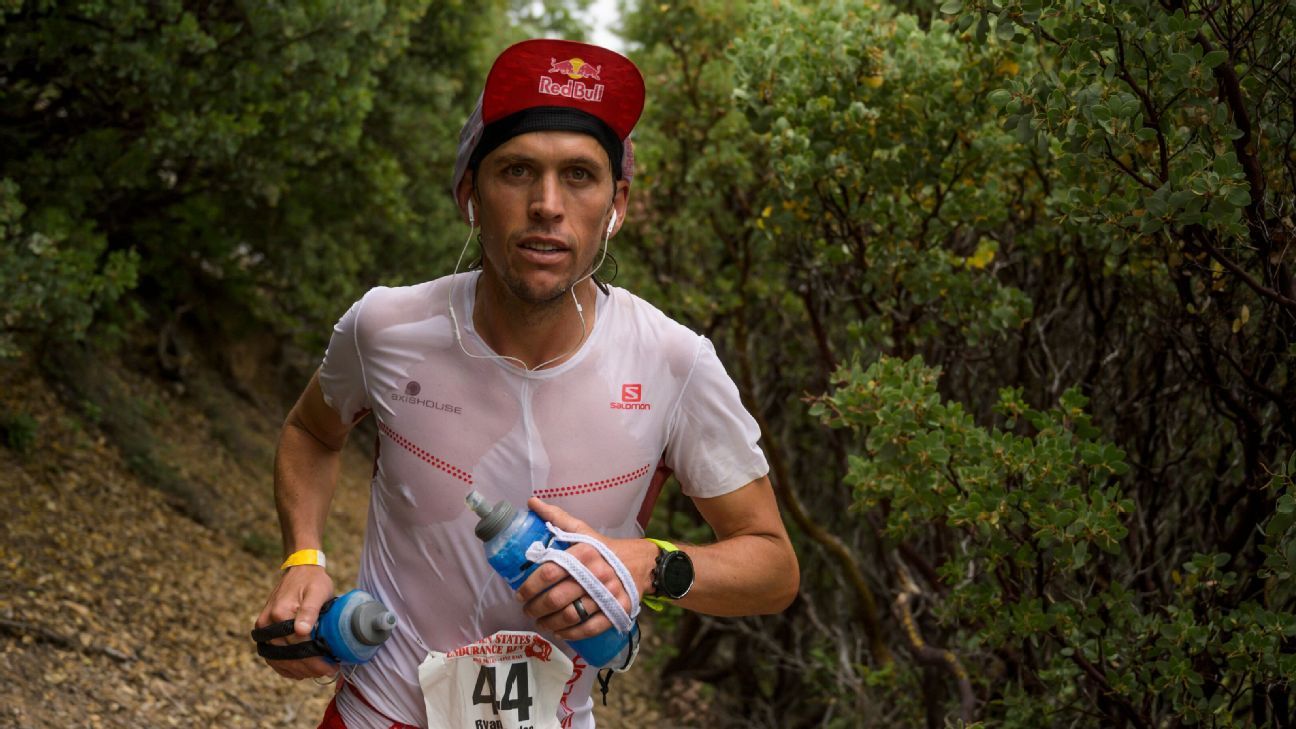
Ultrarunner Ryan Sandes has broken many records in his apparent quest to traverse the globe on foot, from the Great Himalaya Trail in 2018 to winning the set of Four Deserts races at the first attempt.
The South African’s new mission, and he chooses to accept it, is to race around the African mountain kingdom of Lesotho from April 10, aiming to circumnavigate the 1100km (684 miles) inside 15 days.
Sandes and running partner Ryno Griesel broke the Great Himalaya Trail record four years ago, completing the 1500km (930 miles) in 25 days, four hours, and four minutes. They trained in Lesotho in the build up to that Fastest Known Time [FKT], which still stands, and now want to make that training experience official.
Sandes, who at 40 is still considered one of the world’s premier ultrarunners, told ESPN: “Lesotho has probably got some of the most technical trails I’ve ever run in the world.
“They’re very remote trails. The weather changes really quickly up there. At least 70% of it will be completely off trail. We’re just going to be running along ridge lines and peaks and valleys… We’ve realised it’s going to be a lot slower-moving than what we initially anticipated.
“We’re still hoping for 14 or 15 days. We do think that is doable. Obviously, we need to have some luck on our side when it comes to weather conditions.
“From a safety point of view, we’ve got guys on horseback doing a couple of sections with us and guys meeting with us on motorbike [and] on foot just to get some supplies and stuff to us. That’s all going to need to align and run smoothly.”
Sandes battled glandular fever, which he described as “overtraining syndrome”, for a whole year between 2014 and 2015, having finished second in the 2014 Ultra Trail World Tour rankings. Returning to peak performance was no small feat.
He said of his recovery: “That was quite a big thing — feeling so fatigued that you don’t know if you can actually get out of bed in the morning — getting through that was a big thing.
“Mentally, you start to think, ‘Is my career over? Am I done now?’ [With] something like that, you’ve really got to back yourself and believe in yourself that you can keep going and get through it.”
Aside from the mental comeback, Sandes has endured the physical setbacks one would expect from an offroad runner. But by his own account, Sandes has been relatively fortunate with injuries.
He said: “I have rolled my ankles a couple of times and done ligaments in them. I’ve tweaked my back a few times.
“I’ve been lucky, but spraining an ankle and hearing it pop and knowing that you’ve still got to run another 200km or so is not a nice feeling and extremely painful.”
Meanwhile, Griesel strained his quadriceps less than halfway through the Great Himalaya Trail run, but persevered through agony.
“When things are going well and you have success, it’s awesome, and life is good and easy. [But] I think it’s through those setbacks and adversity that you really learn about yourself,” Sandes added.
“It sucks at the time to have to experience that, but I feel that’s when I learn the most about myself. Going through that experience, I get the most motivation to keep going and better myself as a human.
“Those setbacks and being out in the Himalayas has taught both Ryno and I a hell of a lot about each other.”
Sandes hopes that the project will raise awareness of the beauty of Lesotho, but is also motivated by a personal drive to explore a country close to home.
“To be honest, I guess it probably is kind of a personal and selfish challenge… But I think after COVID, I realised what an amazing country we have in South Africa, and Southern Africa and [neighbouring countries] like Lesotho are really incredible,” he said.
“I’ve definitely got a drive post-COVID to maybe travel a bit less internationally and explore areas closer to home. We worked really closely with Lesotho tourism, so hopefully more people can go and experience Lesotho and the mountains and just how awesome the area is.”
